Radio frequency (RF) is being increasingly widely applied and plays an important role in all areas of social life. The Radio Frequency Law came into effect on July 1, 2010. This section 2 is intended to introduce readers to the contents of Chapter IV of the Radio Frequency Law.
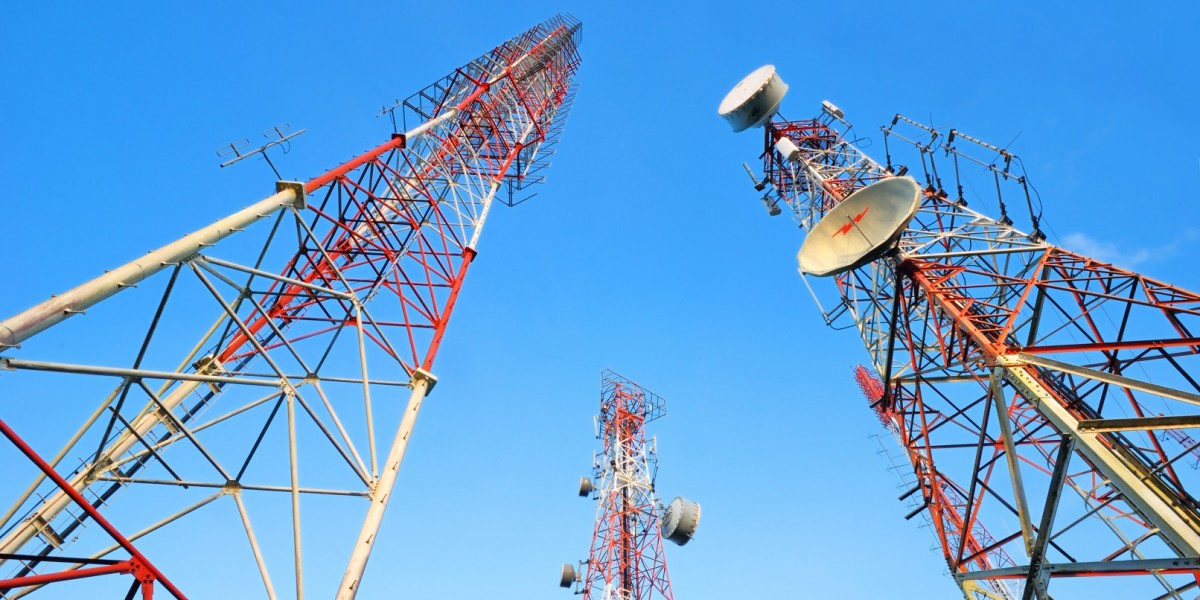
IV. Chapter 4. Licensing and Usage of RF Spectrum
This chapter consists of 18 Articles (from Article 16 to Article 33), which stipulate the types of RF spectrum licenses; principles, methods of granting licenses (direct issuance, through auction, or competitive bidding for the right to use the spectrum), conditions for issuance, extension, modification, supplementation of license content; revocation of RF spectrum licenses; transfer of right to use the spectrum; leasing, borrowing of RF equipment; sharing the RF spectrum; cases of exemption from licensing; rights and obligations of licensed organizations and individuals; fees, RF spectrum usage fees; radio operator certificates; use of the spectrum in emergency situations.
1. Types of RF spectrum licenses
There are three types of licenses:
a. License for using spectrum and RF equipment
This is the most commonly used license, used to grant permission for most radio stations like microwave, taxi radio, broadcasting stations, television stations...
In 2010 alone, the Frequency Department issued nearly 29,000 new and renewed licenses to use spectrum and RF equipment for various types (including broadcasting networks, fixed satellite, private mobile, microwave, ship, fishing boat, wireless broadcasting).
This license is issued after the successful assignment of spectrum and detailed conditions for the use of licensed RF equipment are stipulated. This is a traditional license type, which can be issued for each device or RF information network.
b. Frequency band use license: This type of license was applied according to the previous Postal and Telecommunications Ordinance. It is mainly applied to mobile communication systems, allowing businesses to proactively plan and change frequencies, promptly resolve internal interference within the licensed frequency band without having to apply for a license for each base station (BTS) as before.
Frequency band licenses have been issued for 2G mobile networks of Mobifone, Vinaphone, Viettel in the 900 MHz and 1800 MHz bands, SFone and HTC in the 800 MHz band, the Electric Telecommunications Company in the 450 MHz band, GTel in the 1800 MHz band. Currently, the 3G mobile communication network frequency band licenses have also been completed in 2009.
c. License for using spectrum and satellite orbit: Issued to organizations and enterprises for the operation of space stations at specified satellite orbits. This is a new type of license regulated by the RF Spectrum Law, providing a legal basis for managing the use of RF spectrum and satellite orbits in Vietnam.
2. Maximum duration of RF spectrum licenses
The RF Spectrum Law stipulates the maximum duration for a license to use RF equipment and spectrum at 10 years, frequency band license at 15 years, and license for using spectrum and satellite orbit at 20 years, after consulting international experience and collecting contributions from Ministries and sectors.
3. Principles of license issuance
When issuing new, extending, amending, or supplementing licenses, the following principles must be adhered to:
- Transparency, legality- Compliant with RF spectrum planning- Meeting the requirements of technology and service convergence in RF- Ensuring feasibility, reasonableness, efficiency, cost-effectiveness, and the right purpose; protecting legal rights and benefits of RF service users- Primary services are prioritized over secondary services- Meeting the needs of RF spectrum usage for public benefits and implementing state public welfare tasks- Issuance of RF spectrum licenses to diplomatic missions, foreign consular offices, international organization representatives in Vietnam, high-level foreign delegations visiting Vietnam, which are entitled to diplomatic privileges and immunities according to the principle of reciprocity.
The most important condition for license issuance is successful spectrum assignment.
4. Methods of license issuance:
There are three methods: direct issuance, auction, and competitive bidding.
Direct issuance is conducted based on the application dossier, on a first-come, first-served basis. This is the traditional method currently applied.
Auction and competitive bidding are two new methods introduced in the Law. Licensing via auction or competitive bidding is conducted when "supply" does not meet "demand," often applied to high-value commercial frequency bands, such as those for mobile communication services.
Introducing auctions as a new licensing method accepts the marketization of the telecommunications and spectrum fields. This is an inevitable trend globally, and Vietnam cannot stand outside it. Gradual marketization in telecommunications and RF spectrum will help select the most deserving enterprises that can best utilize the RF spectrum, enhancing the competition among enterprises and ultimately benefiting customers with diverse services and reduced costs.
In the laws of other countries, specific cases for auction or competitive bidding are not typically defined. Learning from this experience, in this Law, the decision on auction or competitive bidding cases will be based on Vietnam's telecommunication policies at that time, the technology development scenario, market demand... The Prime Minister of the Government of Vietnam decides which frequency bands are subject to auction and competitive bidding and sets out detailed rules on auctions, while the Ministry of Information and Communications specifies details on competitive bidding for spectrum usage rights after taking into account all related factors to ensure maximum benefit for the country.
5. Entities eligible for licensing
Organizations and individuals legally operating in Vietnam that meet the conditions for the respective license type. However, for frequency band licenses and spectrum and satellite orbit licenses, individuals are not eligible.
6. Conditions for license issuance
Generally, RF spectrum usage licenses are only issued to organizations and enterprises operating in certain special fields such as telecommunications, broadcasting, satellite information, after obtaining relevant press, telecommunications activity licenses from the Ministry of Information and Communications or complying with conditions stipulated when joining the WTO.
The RF equipment requesting a license must comply with technical standards on RF emission, RF radiation safety, and electromagnetic compatibility.
Spectrum usage must be efficient, economical, and in accordance with planning.
Organizations and individuals applying for a license must commit to complying with legal regulations on safety, information security, resolving harmful interference, and ensuring that personnel operating RF equipment must have a Radio Operator Certificate as stipulated.
For auction or competitive bidding for RF spectrum usage rights, the condition for license issuance is that the enterprise must win the auction or succeed in the competition.
7. Extension, amendment, supplementation of RF spectrum usage licenses
License extension must adhere to the principles of license issuance. The condition for license extension is that the organization or individual has fulfilled all obligations as regulated and when the license validity period remains at least 30 days for spectrum and RF equipment usage licenses, 60 days for frequency band licenses, and 90 days for spectrum and satellite orbit licenses.
If the organization or individual submits a non-conforming extension application, the license will not be extended, and a new license application must be made. If the application is submitted after the license has expired, the organization or individual may have to use a new frequency if the previously licensed frequency has been assigned to another entity.
The total initial and extended period must not exceed the maximum duration stipulated for each license type. If the initial issuance was for the maximum duration, only a one-year extension is allowed to enable the organization or individual time to arrange for a new information network if necessary. After this period, the organization or individual must apply for a new license if continuing to use the spectrum for other purposes.
Amendments and supplements must also adhere to license issuance principles and can only be made within the license's validity period.
8. Revocation of RF spectrum usage licenses
Organizations or individuals using the RF spectrum against the State, harming national defense, security, social order, and safety; non-conforming usage causing significant damage to the State and other organizations, individuals, or unauthorized harmful interference, using frequencies designated for defense, security, rescue, and emergency purposes for other purposes causing serious consequences will have their licenses revoked.
Organizations or individuals failing to fulfill obligations regarding spectrum usage fees and other financial obligations such as transfer tax, auction fees... or not practically implementing the licensed contents within 2 years from the date the license is issued, the managing authority will revoke the license to avoid frequency wastage.
Spectrum revocation details are stipulated in Circular No. 24/2010/TT-BTTTT.
9. Transfer of RF spectrum usage rights
The RF Spectrum Law stipulates that the transfer of channel frequency, frequency band usage rights is only implemented for licenses granted through auction.
Most countries only allow the transfer of usage rights for auctioned licenses. Therefore, permitting the transfer of spectrum usage rights aligns with international practices and meets Vietnam’s socio-economic development needs at this stage.
Transfers are valid only while the license is effective, and the recipient must fulfill all rights and obligations of the original license holder, including those towards related organizations and individuals, minimizing potential disputes post-transfer.
Transfers can only be conducted with the approval of the Ministry of Information and Communications. Specific transfer regulations are defined by the Prime Minister of the Government of Vietnam.
10. Leasing, borrowing RF equipment
The RF Spectrum Law permits: Organizations or individuals owning vehicles equipped with RF devices, amateur radio stations can lease or loan their licensed RF equipment to others for operation.
The law sets out rules for leasing and borrowing RF equipment to establish a legal basis allowing third parties to use a portion of the frequency and equipment of the license holder within certain limits, for a maximum duration equivalent to the license period. Regulations detail the entities, conditions, implementation procedures, and responsibilities involved, managed by the Ministry of Information and Communications.
11. Sharing the RF spectrum
RF spectrum is increasingly scarce, notably in high-use frequency bands. Therefore, for low-traffic or widely mobile spectrum usages, many countries (like the USA, UK, Australia, Germany…) apply shared spectrum solutions to ensure efficient and economical usage, achieving high reuse. For instance, a tourism company needing low-power handheld radios nationwide would share frequencies with other companies with similar needs.
To minimize conflicts and harmful interference during shared spectrum use, the draft law (Article 26) requires the Ministry of Information and Communications to set specific regulations (e.g., subjects, conditions, shared spectrum exploitation procedures, encryption issues…).
12. License exemption for RF spectrum usage
Nowadays, wireless information is widely applied. Small, low-power wireless devices with short communication ranges are increasingly used, from RF-controlled toys, RF car door openers, remote garages, cordless phones, alert systems... Due to low power, limited operational range, the likelihood of causing interference to traditional wireless communication systems is minimal.
These low-power, low-risk devices are exempt from spectrum and equipment usage licenses. However, regulatory authorities stipulate detailed usage conditions such as operating frequency band, power (EIRP, ERP), out-of-band emissions limits, spurious emissions.
Users of these devices are not required to apply for a license but must adhere to exploitation and shared usage conditions as regulated by the Ministry of Information and Communications to ensure devices operate stably without causing interference to other RF systems.
The Ministry of Information and Communications will announce the list of RF devices exempted from licensing and outline specific usage conditions for each device type. Organizations and businesses manufacturing or importing these devices must declare and ensure device compliance with prescribed exploitation and usage conditions. This management approach aligns with administrative reform efforts while maintaining regulatory oversight on RF spectrum usage. This management method is commonly adopted internationally.
The latest regulation on the list of license-exempt devices and usage conditions is Circular No. 36/TT-BTTTT dated December 3, 2009, issued by the Minister of Information and Communications.
13. Rights and obligations of licensed organizations and individuals for RF spectrum and equipment usage
Apart from mandating compliance with legal provisions in the RF spectrum field (e.g., fees, proper usage according to license, international RF coordination agreements, international treaties Vietnam is a member of), a new point in the RF Spectrum Law is allowing organizations and businesses to directly coordinate RF with foreign entities using spectrum and satellite orbits, participate in RF coordination with international RF management agencies under the direction of the Ministry of Information and Communications. This new provision enhances organizations' and enterprises' roles and responsibilities in international RF coordination and registration, creating additional resources for international cooperation, safeguarding national RF spectrum interests.
14. RF operator certificates
Only three RF services, aviation, maritime, and amateur radio, require the operator to have an RF operator certificate because: the RF spectrum for these services is used not only for domestic communication but also internationally. The International Telecommunication Union’s RF regulations stipulate operating procedures and require RF operators in these services to hold certificates. This ensures no interference at the international level, requiring operators to have the necessary skills and knowledge of international operational regulations. National RF management authorities can check these certificates when foreign vessels or aircraft enter their territory.
15. Use of RF spectrum in emergencies
This provision allows organizations and individuals to temporarily use unlicensed RF spectrum and equipment to call for emergency assistance on designated emergency frequencies or non-emergency frequencies in life-threatening situations. However, this use should not be arbitrary or abusive and only in genuine emergencies endangering human life and property.
It also mandates that entities hearing emergency signals must provide necessary assistance and notify rescue agencies.
(To be continued)
Source: Baomoi.com
 Article table of contents
Article table of contents




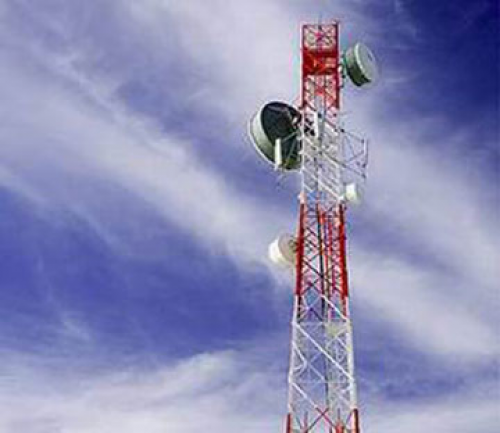

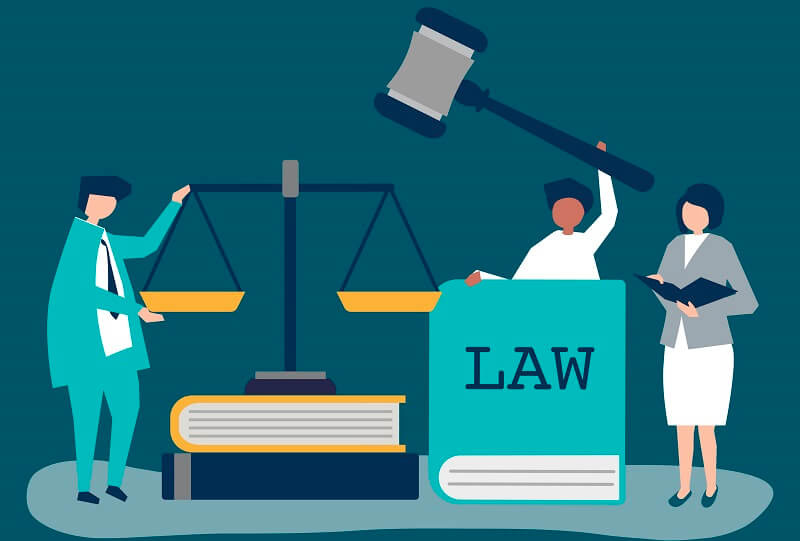
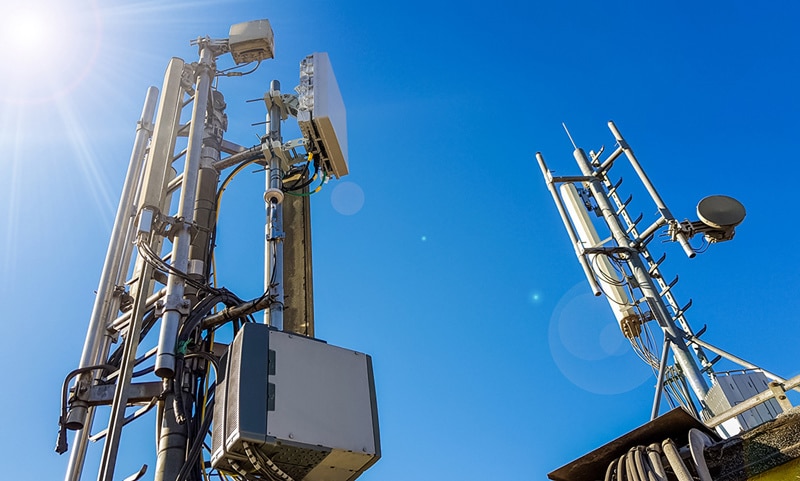
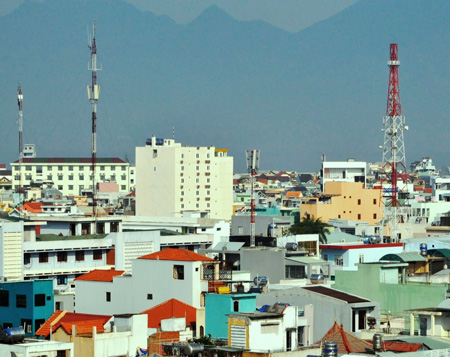

.Medium.png)
.Medium.png)
.Medium.png)
.Medium.png)
